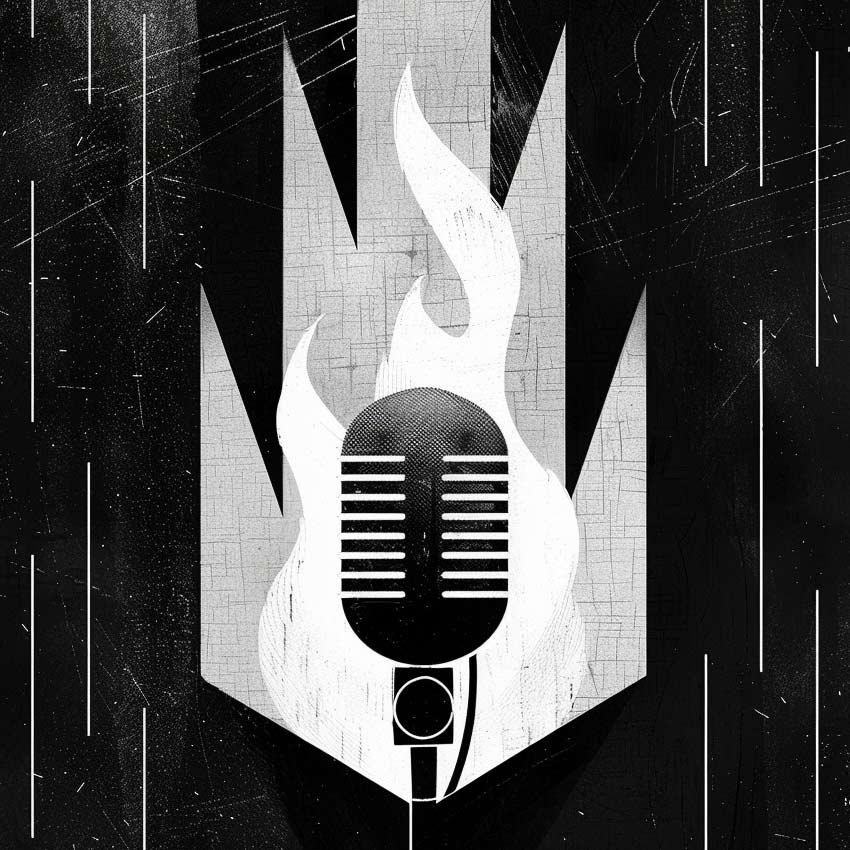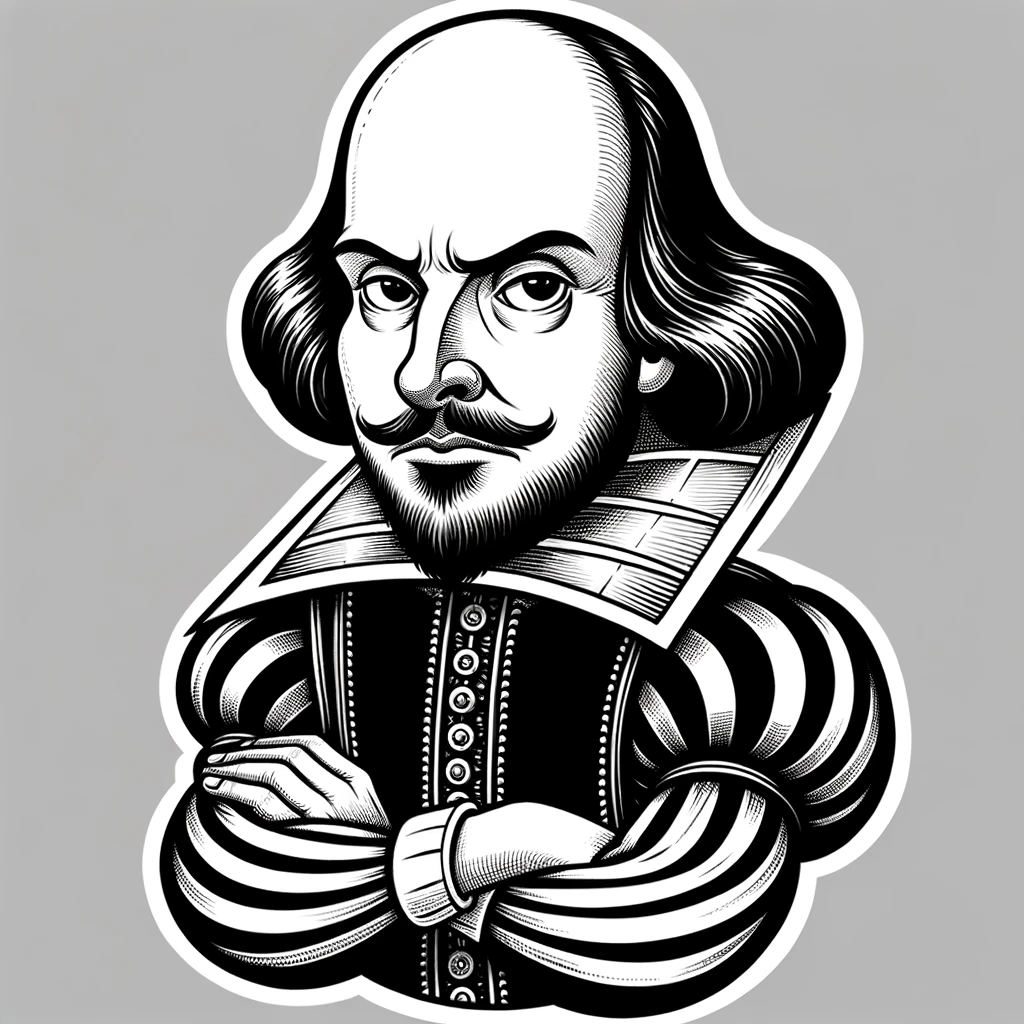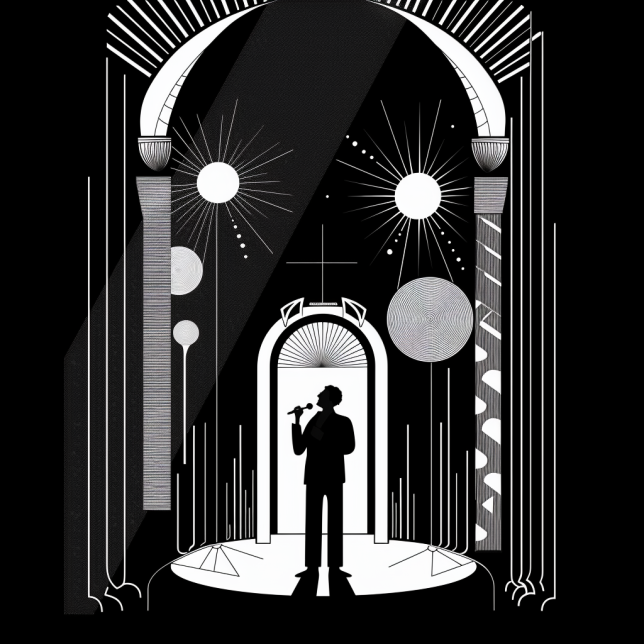What is a Roast?
A roast is an organized event where individuals, often friends, colleagues, or peers, gather to deliver a series of jokes at the expense of a particular person—the roastee. These jokes, sharp and witty, are designed not to harm but to celebrate the roastee in a manner as affectionate as it is humorous. The purpose? To honor, entertain, and showcase a deep understanding of the roastee’s personality, quirks, and life in a light-hearted and humorous setting.
Being chosen as a roastee is often seen as a mark of respect. It suggests you’ve made a significant impact on your social or professional circle. Participants are typically chosen based on their ability to take a joke and their status within the group. After all, as the saying goes, “You only roast the ones you love.”
A Look Back: The Origins and Evolution of the Roast
The concept of the roast traces its roots back to the gatherings of the Friars’ Club in New York City in the early 20th century. These events started as informal gatherings among friends before evolving into the more structured roast events we recognize today. The first official roast took place in 1949, honoring Maurice Chevalier, and since then, the tradition has only grown in popularity and formality.
Originally, these gatherings were benign, dubbed as “testimonial dinners” to honor a fellow Friar. It was all about respect, admiration, and a touch of ribbing. However, the comedic geniuses of the time couldn’t resist the opportunity to turn these testimonials into something more lively. Thus, the roast was born, transforming from polite accolades to an evening filled with barbs, zingers, and laughter, all aimed at the guest of honor, or “roastee.”

Write a Roast Speech with AI
Need a personalized roast speech written right this second? Use the Word.Studio Roast Generator to write a detailed roast speech targeting a friend and colleague who is ripe for the ribbing.
Over the years, the Friars’ Club roasts became legendary. They weren’t just about making fun of someone; they were a rite of passage, a symbol of one’s standing and acceptance in the highest echelons of the entertainment industry. To be roasted was to be recognized, to be seen as one of the greats.
The roster of roastees reads like a “Who’s Who” of the 20th century’s entertainment elite. Names such as Jack Benny, Lucille Ball, and even George Burns were subjected to this comedic crucible. Each event was a testament to the roastee’s career and influence, wrapped in a package of humor that could be both cutting and incredibly warm.
Comedy Central Reinvents the Roast
The Comedy Central Roasts are a modern incarnation of the traditional roast format, brought into the living rooms of the average American with a twist of cable TV irreverence. Since its inception in 2003, starting with the roast of Denis Leary, the Comedy Central Roast has become a highly anticipated event, drawing in viewers with the promise of no-holds-barred humor aimed at some of the entertainment industry’s most prominent figures.
Notable Roastees
Over the years, the Comedy Central Roasts have featured a wide array of roastees, from actors and musicians to media moguls and reality TV stars. Some of the most memorable roastees include:
- Pamela Anderson: The former “Baywatch” star was roasted in 2005, in an event that was as much about her iconic status in pop culture as it was about her personal life.
- Charlie Sheen: In 2011, at the height of his public meltdown, Sheen was roasted, providing a platform for jokes about his career, controversies, and infamous “winning” mantra.
- Justin Bieber: The pop star was roasted in 2015, showcasing a willingness to laugh at his own public image and youthful indiscretions.
- Bruce Willis: In 2018, the action movie star was the center of attention, with jokes often focusing on his film roles and personal life.
Standout Roasters
Several comedians and celebrities have made their mark as standout roasters, delivering some of the most memorable lines in the history of the Comedy Central Roasts. These include:
- Jeff Ross: Beyond serving as roastmaster, his appearances on the stage are always highlights, demonstrating a unique ability to craft jokes that are both cutting and affectionate.
- Greg Giraldo: The late comedian was a fixture at early Comedy Central Roasts, remembered for his sharp, acerbic humor and ability to skewer roastees with precision.
- Anthony Jeselnik: Known for his dark, twisted sense of humor, Jeselnik’s roast performances often push boundaries, leaving audiences both gasping and laughing.
- Nikki Glaser: She has made a name for herself with her unapologetically blunt and often risqué roast jokes, proving her ability to stand toe-to-toe with the best roasters.
- Lisa Lampanelli: Before retiring from stand-up comedy, Lampanelli was dubbed the “Queen of the Roast,” famous for her no-holds-barred approach and ability to deliver insult comedy with a surprisingly warm undertone.
Roles and Rules: The Anatomy of a Roast Event
Roast events do follow a certain structure, consisting of a roastmaster who serves as the event’s host and moderator, and the roasters—friends, colleagues, or even professional comedians—who take turns delivering their best jabs at the roastee. The roastee gets the final word, responding to the roasters with their own rebuttal.
While the event is rooted in humor, there are unspoken rules. The jokes, though cutting, should always come from a place of respect and understanding, avoiding genuinely sensitive topics. The best roasts are those where the roastee can laugh along, knowing the jests are shared in good humor.
Crafting Your Roast: Elements and Preparation
So, how do you write a roast speech? The key elements include a blend of personal anecdotes, playful jabs at the roastee’s peculiar habits or memorable mishaps, and a touch of self-deprecation to balance the scales. Start with a bang, perhaps by saying, “I was honored to be asked to roast Kevin. Then I realized the lineup, and I understood why—I’m the only one he hasn’t borrowed money from… yet.”
Opening Line Examples
- Welcome to an evening dedicated to [Roastee’s Name], a man who’s an inspiration to people everywhere who fear they’re underachieving.
- “Ladies and gentlemen, tonight we gather to honor a man who’s been hailed as ‘the voice of his generation’—a title unanimously voted on each morning between him, his reflection, and his shower head.
- “Welcome to the roast of [Roastee’s Name], the only woman I know who considers a trip to the grocery store as ‘traveling abroad.’
- “They say you can’t choose your family, but you can choose your friends. And yet, somehow, [Roastee’s Name] still ended up here tonight.
- Tonight we’ve come together to roast someone known for their wit, charm, and intelligence. Sadly, they couldn’t make it, so we have [Roastee’s Name] instead.
- “Here’s to [Roastee’s Name], the man, the myth, the reason we double-check our locks at night.
Your speech should have a smooth flow, moving from one joke to another with transitional quips that keep the audience engaged. Conclude on a high note, ideally with a heartfelt sentiment that reminds everyone of your genuine affection for the roastee.
What to Write About
When crafting jokes for a roast, targeting qualities or behaviors that are distinctive but not deeply personal or hurtful is key. Here are several broad categories and examples that can inspire good-natured ribbing:
- Career and Professional Life:
- Job changes or stability (e.g., “has had more job titles than a royal wedding”)
- Professional mishaps (e.g., “the only person to ever get demoted while on leave”)
- Industry stereotypes (e.g., “the reason people think all [profession] do is [stereotype]”)
- Hobbies and Interests:
- Unusual hobbies (e.g., “collects rare dust particles from around the world”)
- Time spent on hobbies vs. social life (e.g., “spends more time talking to plants than people”)
- Fashion Sense:
- Questionable clothing choices (e.g., “thinks ‘business casual’ includes flip-flops”)
- Constant wearing of a particular item (e.g., “has a deeper relationship with his fedora than with most people”)
- Social Media Behavior:
- Overposting (e.g., “provides more updates than a software company”)
- Selfies obsession (e.g., “the reason the selfie stick market hasn’t crashed”)
- Eating Habits:
- Picky eating (e.g., “has a more complicated relationship with food than with their ex”)
- Love for a particular food (e.g., “could be paid in pizza and wouldn’t complain”)
- Quirks and Mannerisms:
- Unique laugh or snort (e.g., “when they laugh, we’re not sure if we should join in or call for help”)
- Constantly losing things (e.g., “could lose a game of solitaire”)
- Tech Savviness or Lack Thereof:
- Struggling with technology (e.g., “thinks ‘Chrome’ is just a color”)
- Being overly attached to outdated gadgets (e.g., “still uses a flip phone, claims it’s for ‘security reasons'”)
- Punctuality and Time Management:
- Always being late (e.g., “would be late to their own intervention”)
- Procrastination (e.g., “the person who makes procrastinators look proactive”)
- Travel and Adventure:
- Fear of traveling (e.g., “thinks a trip to the grocery store is a ‘big adventure'”)
- Overly adventurous (e.g., “the only person to get lost in a guided tour”)
- Relationship with Pets or Animals:
- Obsessed with pets (e.g., “in a serious relationship with their goldfish”)
- Funny incidents with animals (e.g., “the only person a dog has ever tried to return to the shelter”)

Custom Insults on Demand
Need to craft funny insults for your roast but lack any sense of creativity or wit? Use the Word.Studio Insult Generator and fake it.
Preparation for delivery is crucial. Practice your speech to nail the timing and delivery of each joke. Remember, the best roasts feel spontaneous, even when every word has been meticulously planned.
Your Turn to Take the Mic
Roasting is an art form that celebrates relationships, humor, and the idiosyncrasies that make us uniquely human. It’s a testament to the bonds that can withstand, and even be strengthened by, a barrage of well-intentioned barbs. So, why not try your hand at writing your own roast? Or use our roast speech generator and have AI do it for you. Either way, it’s time to gather your wit and set the stage.








